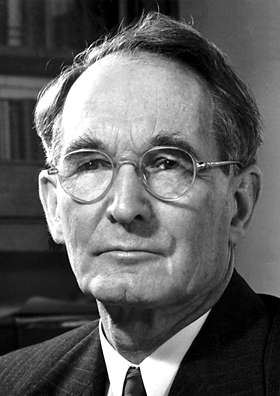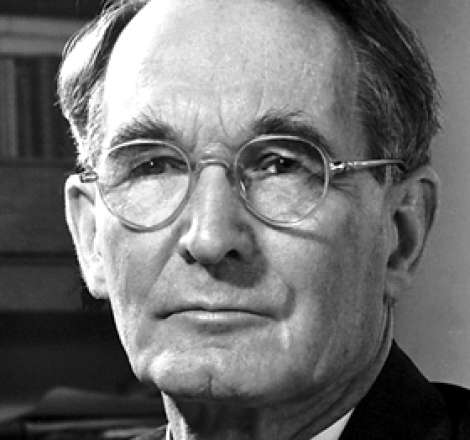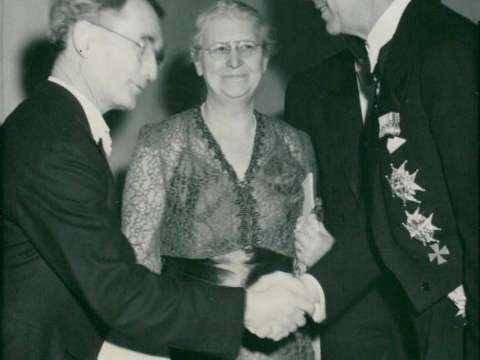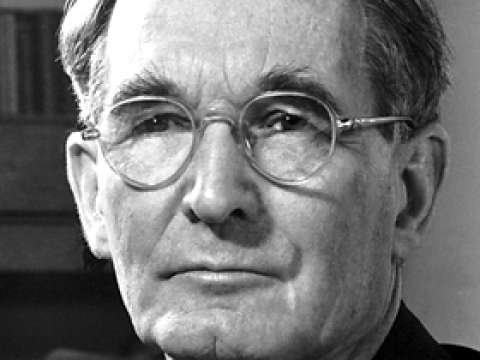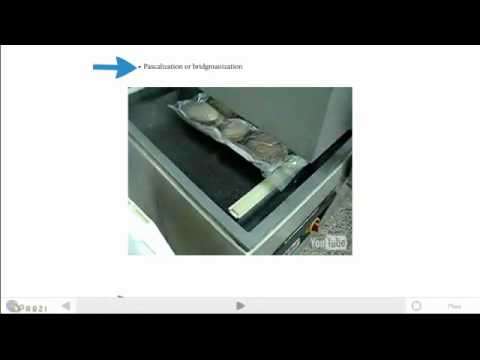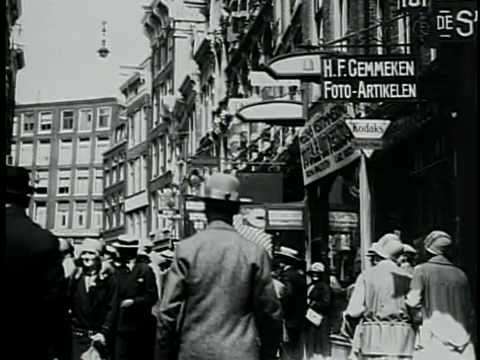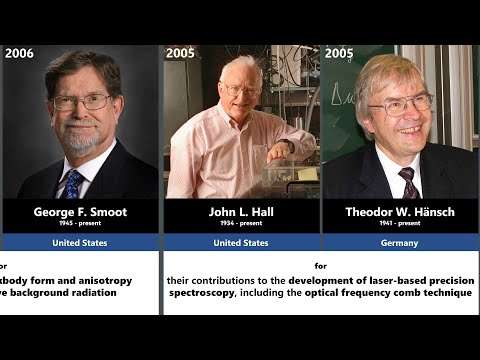

Percy Williams Bridgman (1882-1961)
There is no adequate defense, except stupidity, against the impact of a new idea.
Percy Williams Bridgman was an American physicist who received the 1946 Nobel Prize in Physics for his work on the physics of high pressures. He also wrote extensively on the scientific method and on other aspects of the philosophy of science. The Bridgman effect and the Bridgman–Stockbarger technique are named after him.
Biography
Early life
Known to family and friends as Peter, Bridgman was born in Cambridge, Massachusetts, and grew up in nearby Auburndale.
Bridgman's parents were both born in New England. His father, Raymond Landon Bridgman, was "profoundly religious and idealistic" and worked as a newspaper reporter assigned to state politics. His mother, Mary Ann Maria Williams, was described as "more conventional, sprightly, and competitive".
Bridgman attended both elementary and high school in Auburndale, where he excelled at competitions in the classroom, on the playground, and while playing chess. Described as both shy and proud, his home life consisted of family music, card games, and domestic and garden chores. The family was deeply religious; reading the Bible each morning and attending a Congregational Church. However, Bridgman later became an atheist.
Education and professional life
Bridgman entered Harvard University in 1900, and studied physics through to his Ph.D. From 1910 until his retirement, he taught at Harvard, becoming a full professor in 1919. In 1905, he began investigating the properties of matter under high pressure. A machinery malfunction led him to modify his pressure apparatus; the result was a new device enabling him to create pressures eventually exceeding 100,000 kgf/cm2 10 GPa; 100,000 atmospheres. This was a huge improvement over previous machinery, which could achieve pressures of only 3,000 kgf/cm2 0.3 GPa. Bridgman is also known for his studies of electrical conduction in metals and properties of crystals. He developed the Bridgman seal and is the eponym for Bridgman's thermodynamic equations.
Bridgman made many improvements to his high-pressure apparatus over the years, and unsuccessfully attempted the synthesis of diamond many times.
His philosophy of science book The Logic of Modern Physics 1927 advocated operationalism and coined the term operational definition. In 1938 he participated in the International Committee composed to organise the International Congresses for the Unity of Science. He was also one of the 11 signatories to the Russell–Einstein Manifesto.
Home life and death
Bridgman married Olive Ware, of Hartford, Connecticut, in 1912. Ware's father, Edmund Asa Ware, was the founder and first president of Atlanta University. The couple had two children and were married for 50 years, living most of that time in Cambridge. The family also had a summer home in Randolph, New Hampshire, where Bridgman was known as a skilled mountain climber.

Bridgman was a "penetrating analytical thinker" with a "fertile mechanical imagination" and exceptional manual dexterity. He was a skilled plumber and carpenter, known to shun the assistance of professionals in these matters. He was also fond of music and played the piano, and took pride in his flower and vegetable gardens.
Bridgman committed suicide by gunshot after suffering from metastatic cancer for some time. His suicide note read in part, "It isn't decent for society to make a man do this thing himself. Probably this is the last day I will be able to do it myself." Bridgman's words have been quoted by many in the assisted suicide debate.
Honors and awards
Bridgman received Doctors, honoris causa from Stevens Institute 1934, Harvard 1939, Brooklyn Polytechnic 1941, Princeton 1950, Paris 1950, and Yale 1951. He received the Bingham Medal 1951 from the Society of Rheology, the Rumford Prize from the American Academy of Arts and Sciences 1919, the Elliott Cresson Medal 1932 from the Franklin Institute, the Gold Medal from Bakhuys Roozeboom Fund founder Hendrik Willem Bakhuis Roozeboom 1933 from the Royal Netherlands Academy of Arts and Sciences, and the Comstock Prize 1933 of the National Academy of Sciences.
Bridgman was a member of the American Physical Society and was its President in 1942. He was also a member of the American Association for the Advancement of Science, the American Academy of Arts and Sciences, the American Philosophical Society, and the National Academy of Sciences. He was a Foreign Member of the Royal Society and Honorary Fellow of the Physical Society of London.
The Percy W. Bridgman House, in Massachusetts, is a U.S. National Historic Landmark designated in 1975.
In 2014, the Commission on New Minerals, Nomenclature and Classification CNMNC of the International Mineralogical Association IMA approved the name bridgmanite for perovskite-structured Mg,FeSiO3, the Earth's most abundant mineral, in honor of his high-pressure research.
Bibliography
- — 1922. Dimensional Analysis. New Haven: Yale University Press. OCLC 840631.
- — 1925. A Condensed Collection of Thermodynamics Formulas. Cambridge, Massachusetts: Harvard University Press. OCLC 594940689.
- — 1927. The Logic of Modern Physics. New York: Macmillan. OCLC 17522325. Online excerpt.
- — 1934. The Thermodynamics of Electrical Phenomena in Metals. New York: Macmillan.
- — 1936. The Nature of Physical Theory. Dover. OCLC 1298653.
- — 1938. The Intelligent Individual and Society. New York: MacMillan. OCLC 1488461.
- — 1941. The Nature of Thermodynamics. Cambridge, Massachusetts: Harvard University Press. ISBN 9780844605128. OCLC 4614803.
- — 1949. The Physics of High Pressure. London: G. Bell. OCLC 8122603.
- — 1950. Reflections of a Physicist. New York: Philosophical Library. OCLC 583047.
- — 1952. Studies in large plastic flow and fracture: with special emphasis on the effects of hydrostatic pressure. New York: McGraw-Hill. OCLC 7435297.
- — 1959. The Way Things Are. Cambridge, Massachusetts: Harvard University Press. ISBN 9780674948303. OCLC 40803473.
- — 1961 . Thermodynamics of Electrical Phenomena in Metals and a Condensed Collection of Thermodynamic Formulas. New Haven: Macmillan. OCLC 610252150.
- — 1962. A Sophisticate's Primer of Relativity. Middletown, Conn: Wesleyan University Press. OCLC 530615.
- — 1964. Collected experimental papers. Cambridge, Massachusetts: Harvard University Pres. OCLC 372237.
More facts
Operationalism
Operational definition
Elliott Cresson Medal (1932)
Comstock Prize in Physics (1933)
Nobel Prize in Physics (1946)
Fellow of the Royal Society (1949)
Bingham Medal (1951)


